How inequality limits reproductive rights in Latin America
- Published
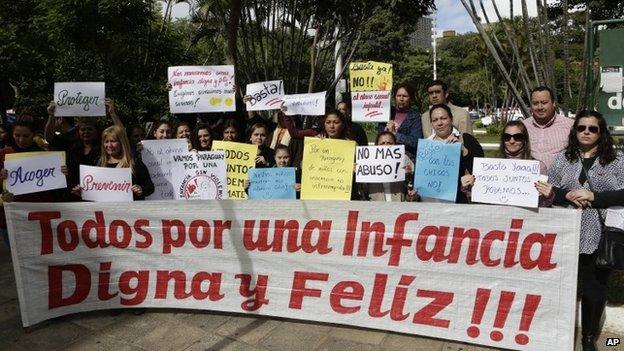
The case of a pregnant 10-year-old girl triggered a discussion about abortion in Paraguay
Catholicism and conservatism go hand in hand in Latin America.
It is a region where the family is sacred and laws are made with that in mind.
But for many, those family ideals have been tested by the recent news that a 10-year-old girl in Paraguay was denied an abortion after allegedly being raped by her stepfather.
Under Paraguayan law, abortion is illegal unless the mother's life is in danger.
In this case, it was ruled that the 10-year-old's life was not in danger.
It is a ruling that has been heavily criticised by the United Nations' Office of the High Commissioner for Human Rights which said that the country had failed to protect the girl.
According to the World Health Organisation, the main causes of death in adolescent girls in developing countries are pregnancy-related complications and childbirth.
Deadly restrictions
Paraguay is not the only country in Latin America that restricts abortion.
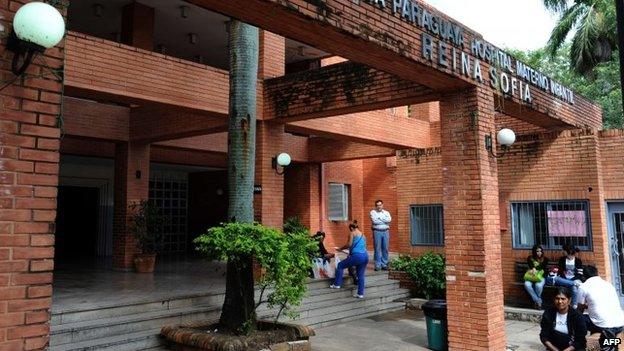
The 10-year-old, who is now five months pregnant, is in hospital in Asuncion
In five countries abortion is outlawed completely and heavy restrictions such as those in Paraguay are in place across the region.
But this is not just an issue of competing liberal norms and conservative values.
It is mainly about inequality in a region where the gulf between rich and poor remains huge.
To access abortions, you either have to have the money to pay for illegal procedures or the funds to fly out of the country.
Bleak prospects
For the women who cannot afford that, the reality is far bleaker.
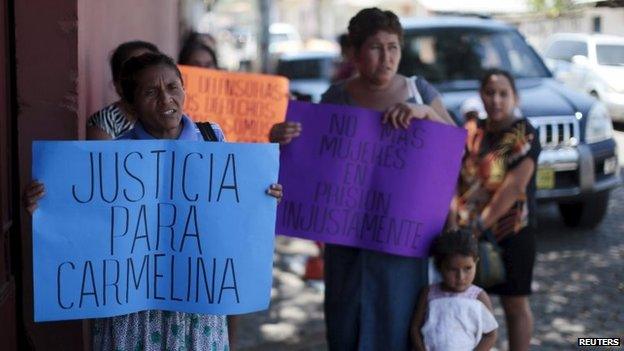
Women in Central America face long jail terms if convicted for abortion
One doctor told me of a case in Central America where a woman put caustic soda inside her vagina.
It did not end her pregnancy, instead, she was so badly burned, she had to have a caesarean.
And these women still risk facing the legal consequences of what they do once they recover.
Erika Guevaras-Rosa is the Americas director for Amnesty International. She says strict abortion laws in Latin America criminalise poverty.
It is a view that is shared by several doctors I spoke to in El Salvador.
Money talks
In fact, they could not name any cases of women who had been jail on abortion charges after attending a private hospital.
The reality is that if a woman pays for a service and knows her doctor, she can get the treatment she asks for.
But for those with no money for private care it is a different story. They often face discrimination when they should be getting support.
The fate of the 10-year-old girl in Paraguay is not unique.
There are many more across the region, such as the 11-year-old girl known only as "Belen" who became pregnant by her mother's partner in Chile two years ago.
Her story also stirred debate.
Small steps
But Monica Arango from the non-profit advocacy group Center for Reproductive Rights says there are huge differences between Central and South America.
In her opinion, small steps are being made in South America to recognise women's rights.
Earlier this year, Chilean President Michelle Bachelet announced a plan to legalise abortion in cases of rape or when there is a threat to the mother's or the baby's life.
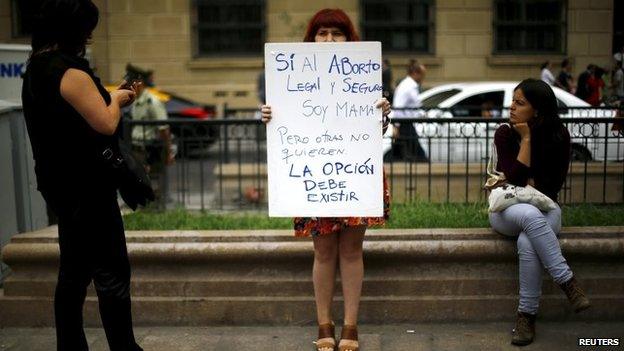
There have been pro-choice and anti-abortion rallies in Chile
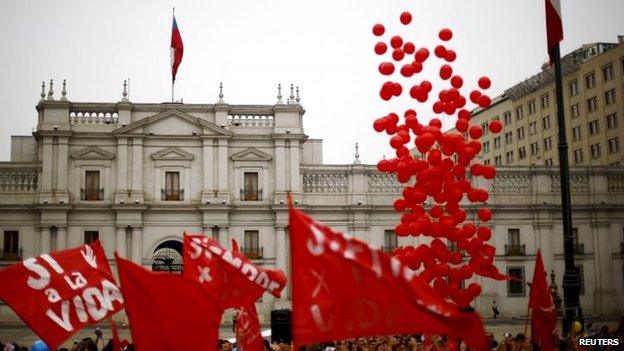
Ms Arango says Brazil and Argentina have also made small changes to their laws in recent months.
But she says Central America is a place where it is dangerous to be a woman of reproductive age.
During a recent visit to El Salvador, I met women who had lost their babies towards the end of their pregnancies.
Despite the fact they said they never aborted, their circumstances were viewed as suspicious.
Abortion is completely banned there and the consequences for those who are seen to be breaking the law are tough.
Some women I met had been locked up for as many as 40 years on abortion charges.
Without fail, the women I spoke to came from poor backgrounds; some were single mothers and many of them had been raped.
Some did not know they were pregnant and miscarried; others suffered complications at the end of their pregnancy and could not get help quick enough.
'Neglected and judged'
This is a major problem.
Many women from poorer backgrounds have problems accessing health services during their pregnancies.
It means they are not properly monitored and cannot always talk to doctors when necessary, or are afraid to do so.
One doctor in El Salvador told me that her pregnant friend called her in a panic one morning because she was bleeding.
Asked why she had not sought help earlier, the single mother with no money for private treatment just replied: "Are you crazy?".
She was scared that doctors at public hospitals would assume she was "just another single woman trying to abort her baby".
Such is the conservatism in places like El Salvador, it is not unheard of for single women to ask a male friend along to hospital to make it look like they are an upstanding couple.
As long as the Catholic Church remains strong, easing restrictions on abortion will remain a struggle and only those with the financial means will have the option to buy their way out of their predicament - an option which remains closed to many in this part of the world.
- Published28 April 2015
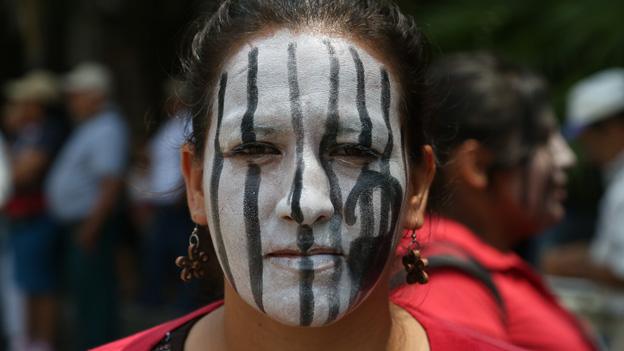
- Published7 May 2015
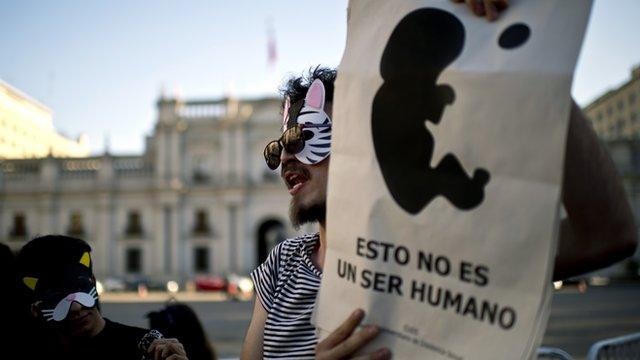
- Published12 July 2013
